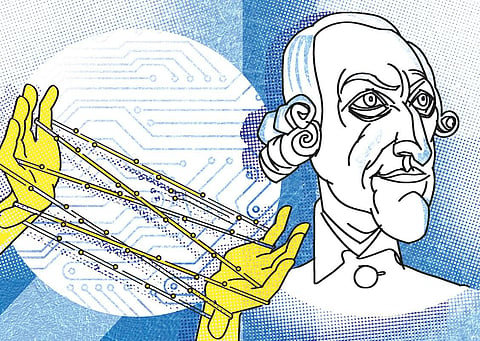

In Song of Myself published in 1855, American poet Walt Whitman remarked, “I am large, I contain multitudes.” He may not have work in mind, but his statement does have implications for the all-pervasive generalist versus specialist debate of the 21st century. There are myriad versions of ourselves that seldom manifest at jobs and the way we carry on with our lives. Quietly conscious of unfulfilled destinies, many of us wonder if there could be more to life than the mandates of punishing work schedules.
The strongest critique against tinkering and dabbling with our various selves comes from Scottish economist and philosopher Adam Smith. In The Wealth of Nations (1776), he spoke about how the division of labour premised on deep specialisation was essential for augmenting productivity in the capitalist system. He explained with great panache the efficiency that can be brought about if everyone focused on one narrow task and stopped indulging in what Walt Whitman called “multitudes”.
Smith was prescient in many ways. Doing one narrow job made perfect sense in the industrial age. It unleashed great economic productivity, but it came at the cost of experimentation and curiosity.
One of Smith’s most serious readers was Karl Marx who agreed with the analysis as applied to the economic system. Where he differed with Smith was the overall efficacy of such a system focused on hyper-specialisation. Marx said we dull our lives and cauterise our talents by specialising without knowing why.
As you can tell, both Smith and Marx made sense. There was, at least in the industrial era, a clash between the demands of the employment market and the free, wide-ranging potential of our work lives.
In 1930, John Maynard Keynes predicted that by the end of the century, technology would have advanced so comprehensively that we would all be working 15-hour work weeks. Technology has advanced much more than Keynes’ wildest imagination, but hardly anyone works 15-hour a week today.
One theory proffered by LSE anthropologist David Graeber is the emergence of ‘bullsh*t jobs’. He asks why did the Keynesian utopia never materialise. The standard response to Graeber is the exponential increase in consumerism. Given the choice between less hours and more toys and pleasures, we have collectively chosen the latter.
Graeber says it is as if some powerful force out there is making up pointless jobs just for the sake of keeping us madly busy. In socialist states like the Soviet Union, where employment was considered both a right and a sacred duty, being busy was equated to doing actual work. It was too common to find three clerks earning a pittance employed to sell a piece of meat. Tired of the woeful inefficiency, market competition was supposed to fix it, but even according to the latest surveys carried out in countries, ranging from the UK to Sweden to the US and India, somewhere between 35-60 percent of employees believe their work makes no difference. There is a crisis of meaning even though these jobs pay the bill for the time being. The answer, Graeber believes, isn’t economic; it is moral and political. The ruling class figured out that a happy and productive population with free time on their hands is a danger.
I believe that the time for meaningless jobs is coming to an end. Coronavirus-induced pressures on economies will lead to a massive disruption in our work lives. Passion economy is not only a window to a new kind of employment, but an emergence of an operating system where people will have to stop being busy for the heck of it, pause to figure out what problem needs their attention and then plan to create more meaningful jobs that both pay the bill and propel us to explore our multitudes.
In this pursuit, the ability to reinvent ourselves will be the most important skill. Reinvention is not easy as a solitary pursuit. We will need our collective networks, combined resilience and a mind that questions established systems that make no sense today.
It is hard to say whether Whitman, Smith, Marx or Keynes will prevail, but perhaps a new system will be cocreated by all of us. Technology and artificial intelligence will no doubt be an important factor, but it will only make sense if contextualised at the human level, not only for the big enterprises and governments, but also for micro networks, micro communities, micro institutions and micro cultures.
Utkarsh Amitabh
CEO, Network Capital; Chevening Fellow, University of Oxford
Twitter: @utkarsh_amitabh